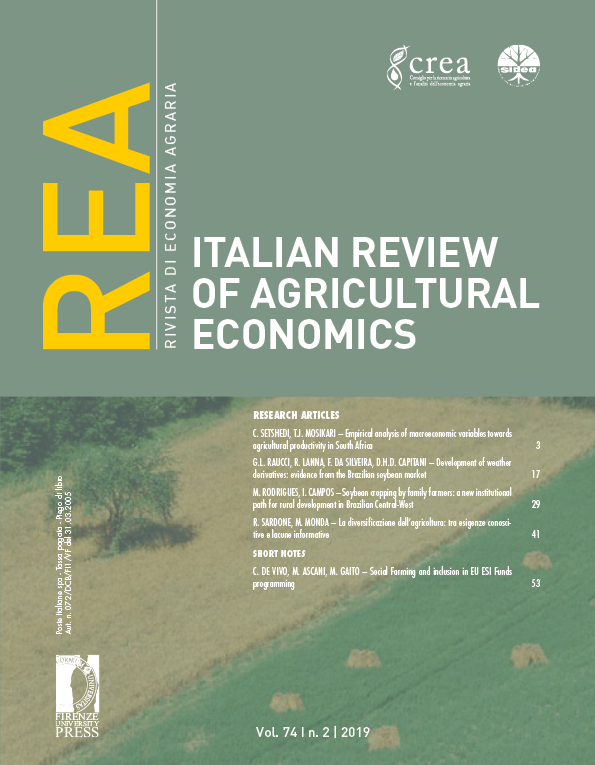Social farming and policies in Tuscany, between social innovation and path dependency
Published 2019-04-03
Keywords
- social farming,
- narratives,
- transition,
- policy making
How to Cite
Abstract
Social farming (SF) emerged in the latest ten years in Italy and in the EU as an innovative practice able to link multifunctional agriculture and innovative social services for both urban and rural areas. SF mobilises unexpected resources from agriculture in order to meet local emerging social and economic needs and can be easily analysed under the perspective of social innovation (SI). Stakeholders with multiple competences and narratives are engaged by activating a political game that might have fragmented results at diverse levels. The paper starting from the analysis of the Tuscany case − one of the Italian regions where the discussion aroundSF started for the first time − focuses on the triangulation among narratives, articulation in policy making, and results in terms of innovation in rural areas.


